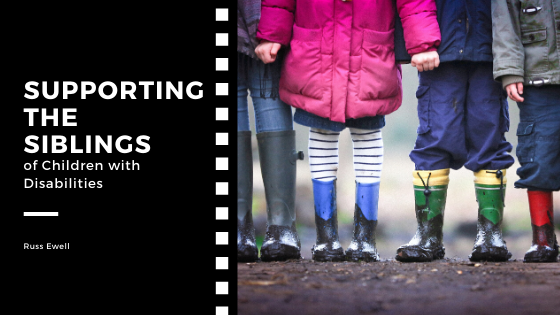There is nothing quite like having a sibling. From arguments over toys and bathroom time to presenting a unified front to the world, a sibling makes life fun, challenging, and interesting. However, being a sibling to a child with a disability comes with its own sets of complications and rewards. Understanding and helping a child navigate this potentially rough territory is imperative to foster healthy and strong relationships throughout the family.
The first step is to allow a child to express their emotions. It can be awkward for a child to express their emotions to friends and teachers, but allowing a safe space for those thoughts and feelings to be communicated is essential. Regardless of being positive or negative, children need to be able to express themselves without fear of anger or backlash resulting from communication.
Setting high but achievable expectations are also important. Every child in a household should be expected to shoulder the same responsibilities and chores if able. Keeping the expectations similar for each sibling will cut down on rivalry and the feeling that a double-standard regarding the disabled child exists would be nullified. Children should be treated as equally as possible.
Make sure there is individual time for each child. It can be hectic and overwhelming at times to raise a child with a disability, but every child needs time, love, and attention. Being present and available to siblings is just as important as being there for the disabled child. Bear in mind that there will be conflict. People argue – it is natural and part of growing, learning, and understanding. Allow for healthy conflicts and help each child work through issues both individually and together.
Be sure to celebrate each child’s individual milestones. It is important to remember that every child needs to feel seen and appreciated. While milestones for a child with disabilities might seem to be cause for larger celebrations, siblings need to know they are cherished as well. Keeping that in mind helps children to see that they are equally loved by their parents.
There are many other ways to help siblings understand their unique family dynamics. Making sure information is readily available at age-appropriate levels can answer unasked questions. Forewarned is always forearmed and understanding is essential to raising healthy, happy siblings.

